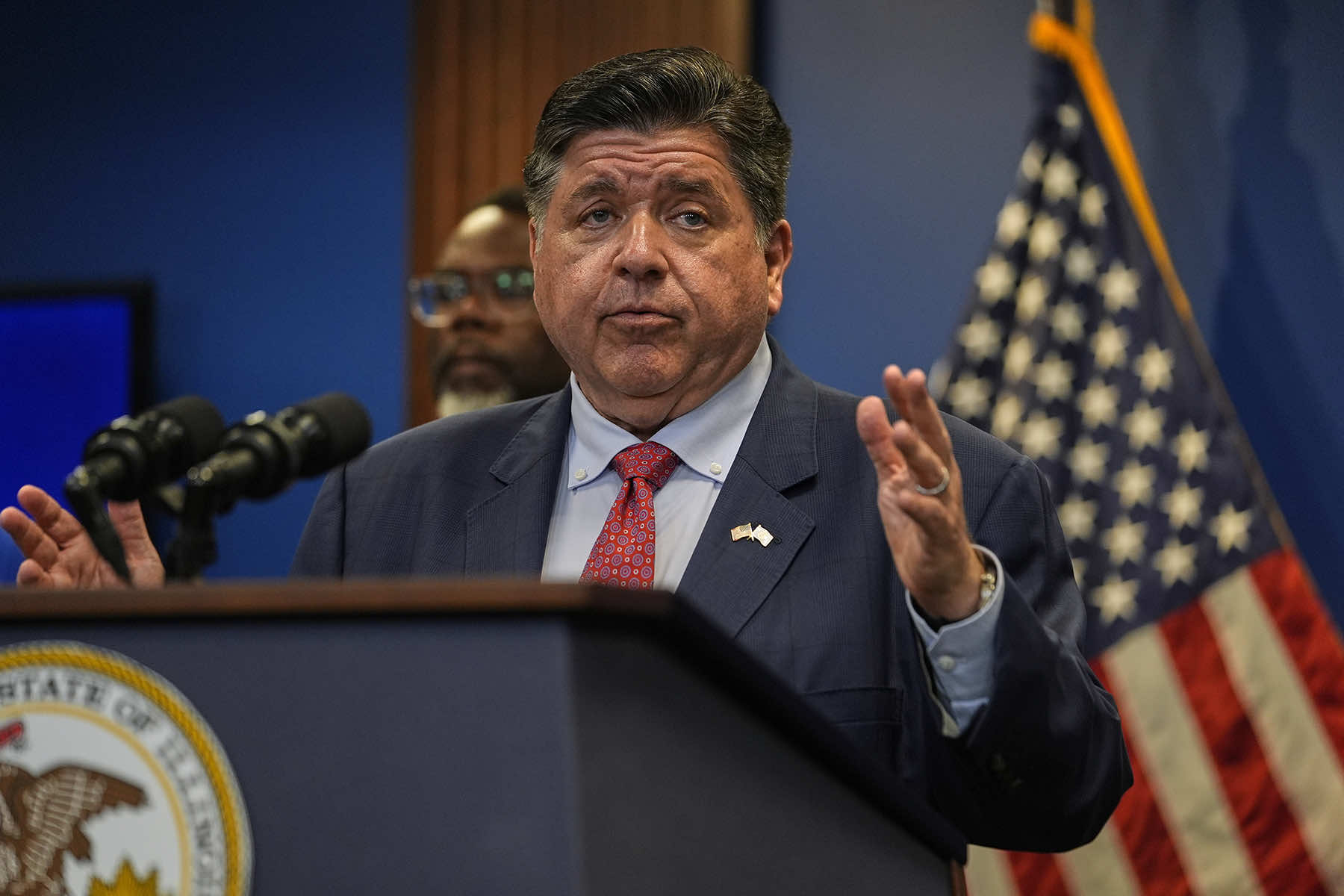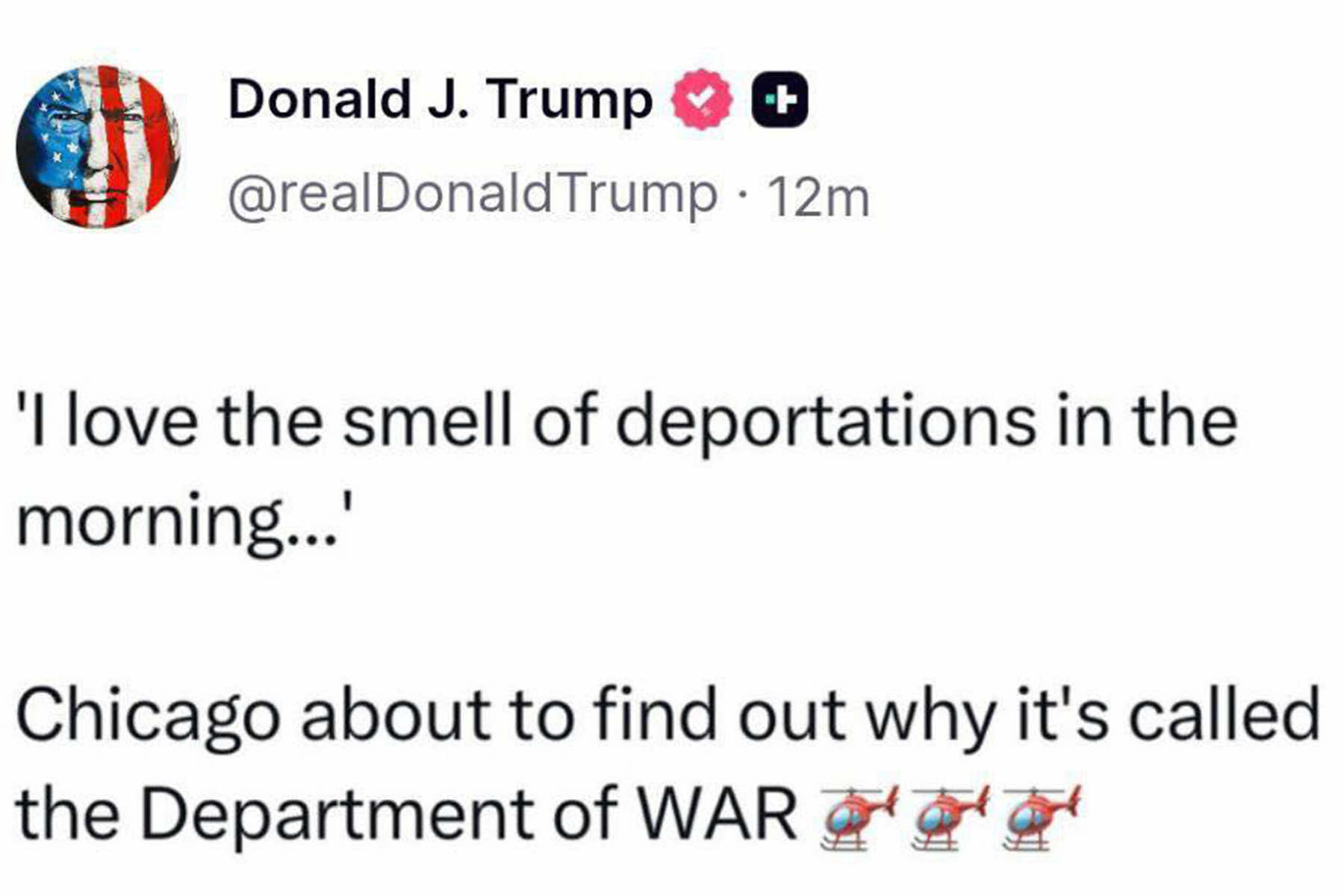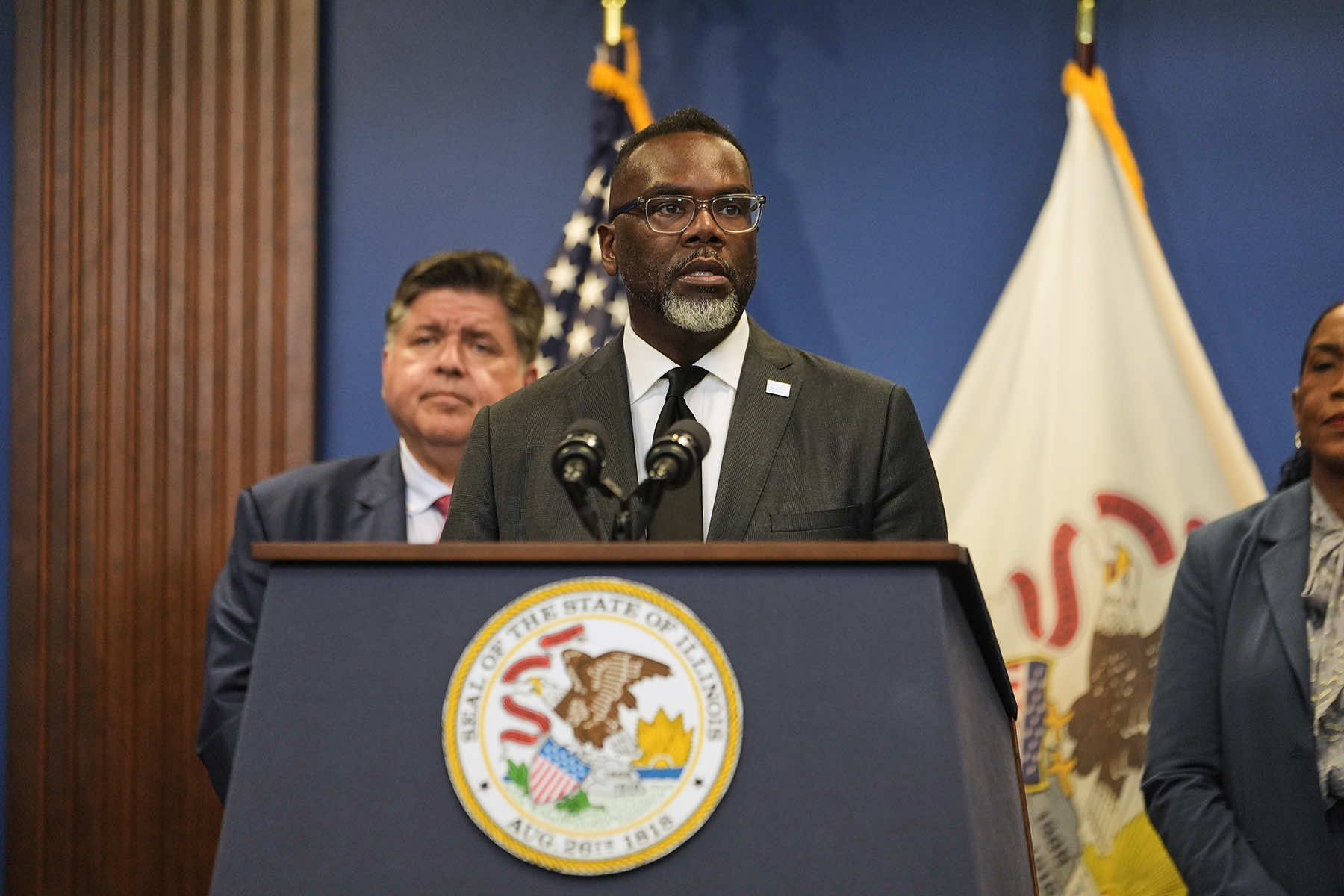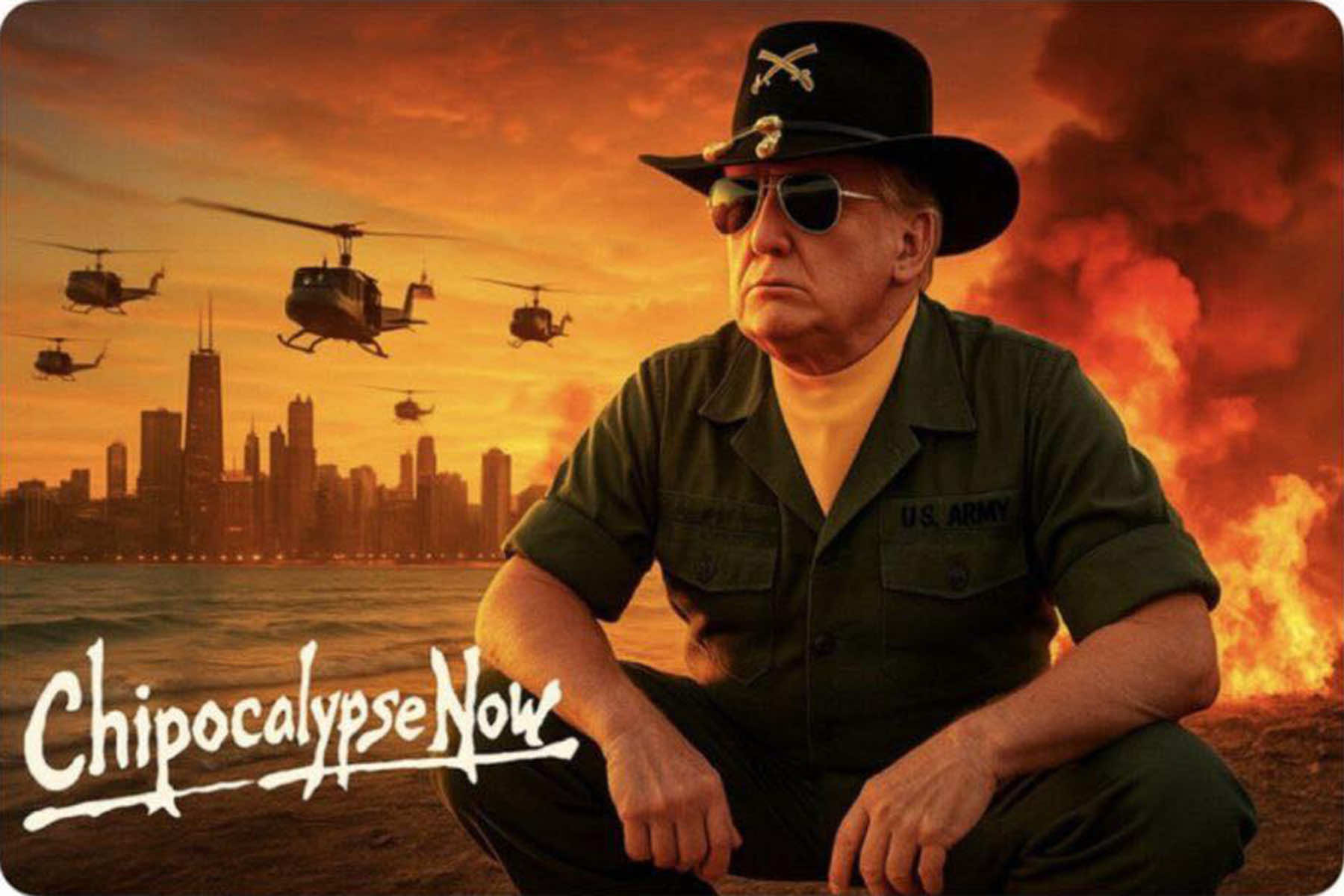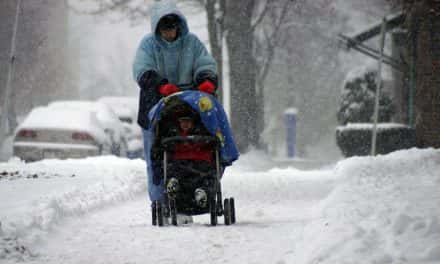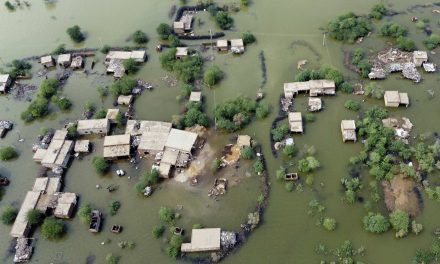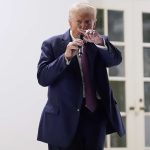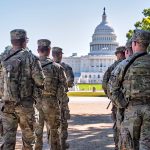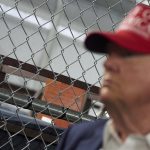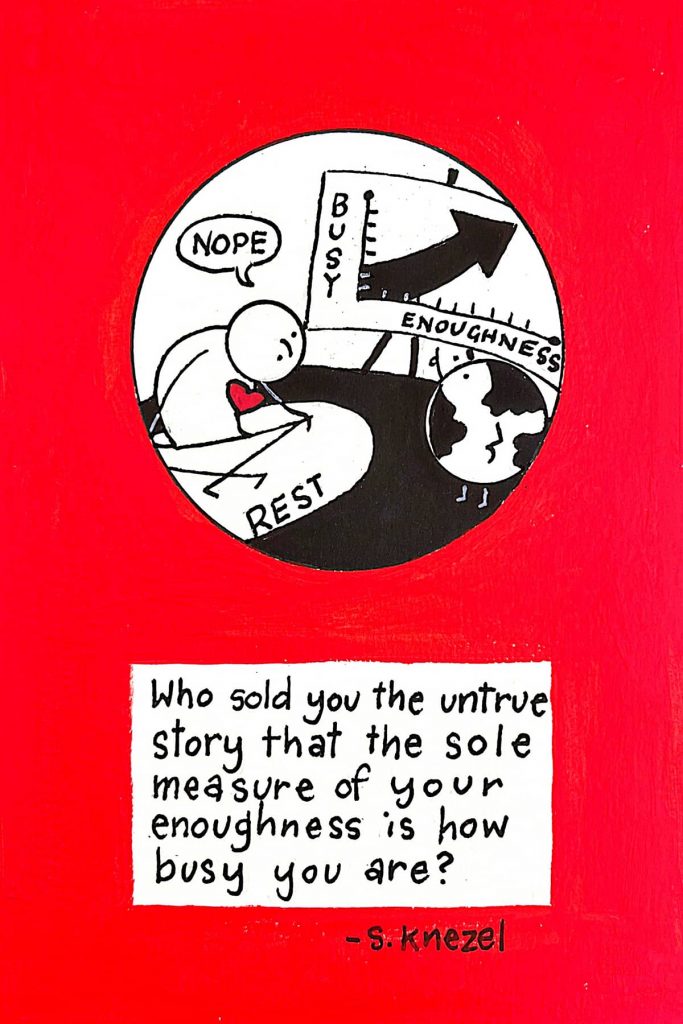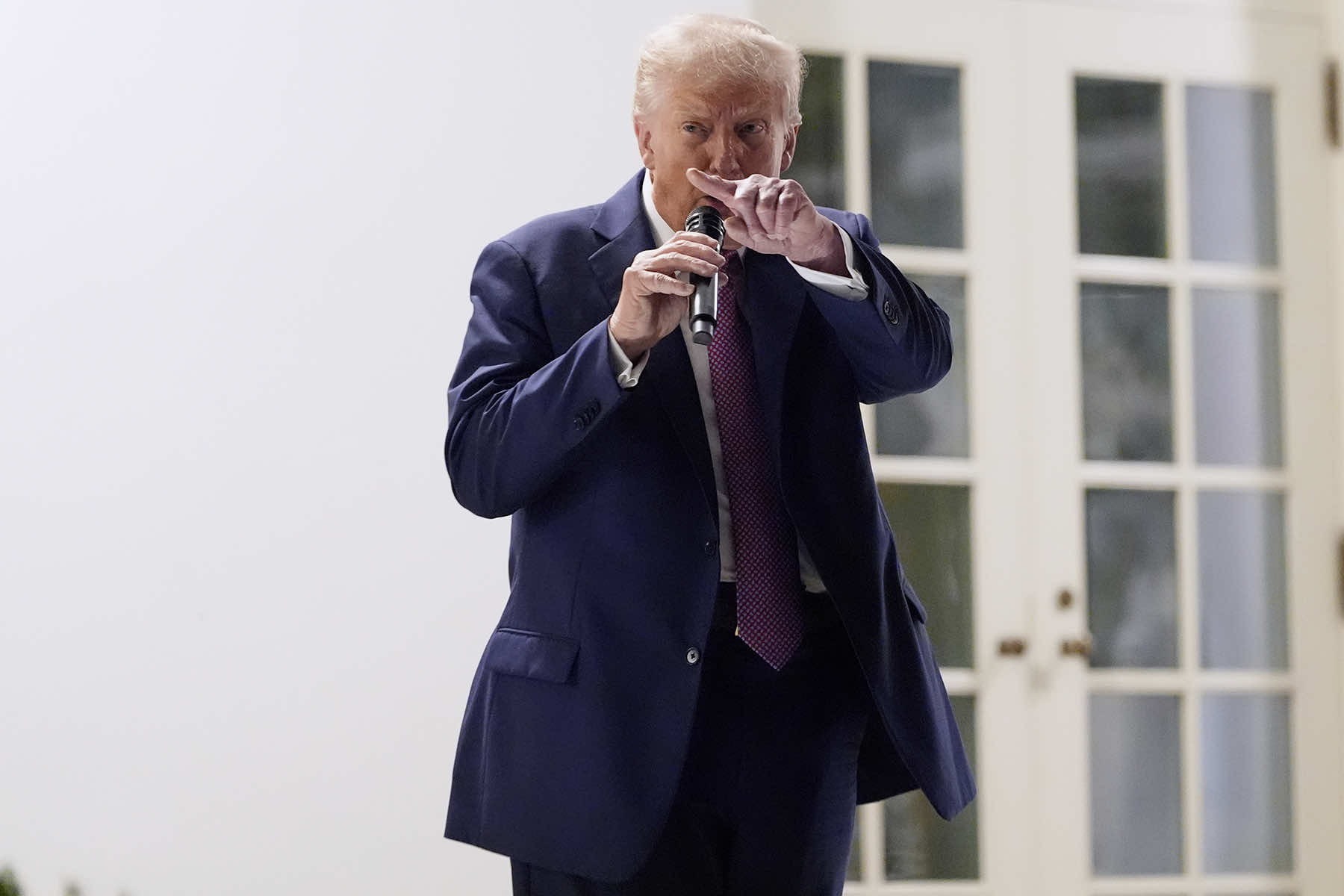
Donald Trump, on September 6, amplified his threats to send National Guard troops and immigration agents to Chicago by posting a parody image from “Apocalypse Now” featuring a ball of flames as helicopters zoom over the nation’s third-largest city.
“‘I love the smell of deportations in the morning,'” Trump wrote on his social media site. “Chicago about to find out why it’s called the Department of WAR.”
The president offered no details beyond the label “Chipocalypse Now,” a play on the title of Francis Ford Coppola’s dystopian 1979 film set in the Vietnam war, in which a character says: “I love the smell of Napalm in the morning.”
In response to the post, Illinois Governor JB Pritzker, a Democrat, called Trump a “wannabe dictator.”
On September 5 Trump signed an executive order seeking to rename the Defense Department the Department of War, after months of campaigning to be considered for the Nobel Peace Prize. The renaming requires congressional approval.
The illustration in Trump’s post shows him against a backdrop of the Chicago skyline, wearing a hat matching that of the movie’s war-loving and amoral Lt. Col. Kilgore, played by Robert Duvall.
Trump’s weekend post follows his repeated threats to add Chicago to the list of other Democratic-led cities he’s targeted for expanded federal enforcement. His administration is set to step up immigration enforcement in Chicago, as it did in Los Angeles, and deploy National Guard troops.
In addition to sending troops to Los Angeles in June, Trump has deployed them since August in Washington, as part of his unprecedented law enforcement takeover of the nation’s capital.
He has also suggested that Baltimore and New Orleans could get the same treatment, and on Friday even mentioned federal authorities possibly heading for Portland, Oregon, to “wipe ’em out,” meaning protesters. He could have been mistakenly describing video from demonstrations in that city years ago.
Trump’s four-week military occupation of Washington DC, enforced through a contrived emergency order that gave him direct control over local police, marked a turning point in the normalization of domestic militarization.
Thousands protested in the capital on September 6 under banners reading “END THE D.C. OCCUPATION,” calling the action an affront to democracy. Residents, denied federal representation, warned they were at the mercy of a “wannabe dictator.”
Trump had falsely justified the deployment as a crackdown on crime, even as local leaders said crime was down. Critics now see Chicago as the next target in a pattern of federal overreach dressed in war rhetoric.
Details about Trump’s promised Chicago operation have been sparse, but there is already widespread opposition. City and state leaders have said they plan to sue the Trump administration. Pritzker, a possible 2028 presidential candidate, is also fiercely opposed to it.
The president “is threatening to go to war with an American city,” Pritzker wrote on X over an image of Trump’s post. “This is not a joke. This is not normal.”
What Trump is proposing, using military force and federal agents to overtake a major American city against the will of local and state officials, crosses a line that most constitutional scholars consider unthinkable in a functioning democracy.
The deployment of National Guard troops without state approval and the invocation of war rhetoric against domestic targets strips away the legal and moral boundaries that separate democratic governance from authoritarian rule. Legal scholars say it is not law enforcement. It is a declaration of power.
By framing political opposition as criminal unrest and pairing that with violent symbolism, Trump is constructing a narrative where force replaces dialogue and control overrides consent. It is the logic of a regime preparing the public for internal war.
“Donald Trump isn’t a strongman. He’s a scared man. Illinois won’t be intimidated by a wannabe dictator,” added Governor Pritzker.
Throughout history, authoritarian regimes have often used domestic security threats — real or manufactured — as justification to override local authority and deploy military force against their own citizens. From Franco’s Spain to Putin’s Russia, the centralization of armed power in the executive branch has repeatedly marked the collapse of democratic institutions.
In the United States, the Posse Comitatus Act has long restricted federal use of the military for civilian law enforcement, precisely to prevent this kind of power consolidation. Trump’s rhetoric — combining military imagery, threats of force, and contempt for legal limits — echoes the early stages of state repression in systems that later abandoned democratic rule entirely.
The timing of Trump’s Chicago threat also raised alarm due to its proximity to new developments in the Jeffrey Epstein investigation.
Trump has previously admitted knowing Epstein and described him as a “terrific guy” in a 2002 interview, adding, “he likes beautiful women as much as I do, and many of them are on the younger side.”
Critics argue that Trump’s inflammatory threats are calculated attempts to deflect media coverage and distract the public from potentially damaging revelations tied to Epstein.
Numerous mental health experts, former staff, and political observers have long raised concerns about Trump’s erratic behavior, impulsive speech, and apparent detachment from factual reality.
His repeated public statements that blur fantasy, vengeance, and authoritarian projection — including the suggestion that he has unlimited power, or that domestic enemies must be “wiped out” — have escalated in tone and frequency during his second term.
Critics argue these are not simply rhetorical flourishes but reflect a deepening instability that poses a threat to democratic institutions.
Trump has suggested that he has nearly limitless powers when it comes to deploying the National Guard. At times, he has even touched on questions about his being a dictator.
“Most people are saying, ‘If you call him a dictator, if he stops crime, he can be whatever he wants’ — I am not a dictator, by the way,” Trump said in August. He added, “Not that I don’t have — I would — the right to do anything I want to do.”
“I’m the president of the United States,” Trump said then. “If I think our country is in danger — and it is in danger in these cities — I can do it.”
Closer to home in Wisconsin, Milwaukee Police Association (MPA) President Alex Ayala announced on September 2 his plans to reach out to Trump to request the National Guard be brought into the City of Milwaukee, to assist Milwaukee Police with crime control and prevention.
Ayala faced swift and immediate backlash for his illegal request, that was a violation of federal law. A federal judge recently affirmed that Trump had illegally deployed combat troops in Los Angeles.
“Asking a fascist administration to deploy the U.S. military into a city without serious unrest and major threats to public safety – and for such unnecessary reasons as a vague notion of ‘crime control’ is not and will never be acceptable. With the MPA currently in bargaining for their contract, one is forced to question Mr. Ayala’s motivations, and whether this is simply a publicity stunt and negotiating tactic,” said Alderman Alex Brower and Alderwoman Larresa Taylor in a joint statement.
The Milwaukee leaders noted that making a request for such an illegal action was a violation of a police officer’s moral duty to uphold the law. They encouraged Ayala, and the rest of the Milwaukee Police Association, to fulfill their oath to uphold the Constitution of the United States and the laws of the State of Wisconsin.
“We do not want nor need the military patrolling our streets and threatening our residents. We remain firm in our stance that the only way to reduce crime is by addressing its root causes. This means alleviating poverty, preventing homelessness, providing treatment for drug addiction, and creating programs and an environment that engages our youth in a healthy way. The deployment of the military within our City is antithetical to these goals and is not welcome.”

